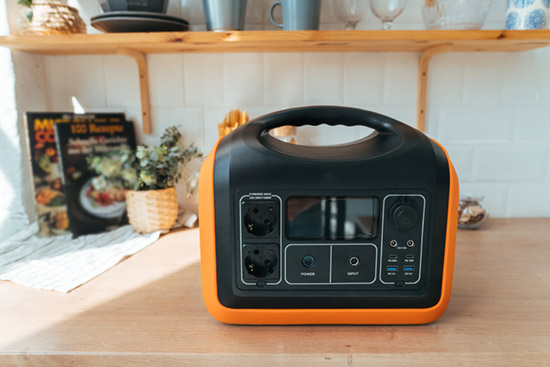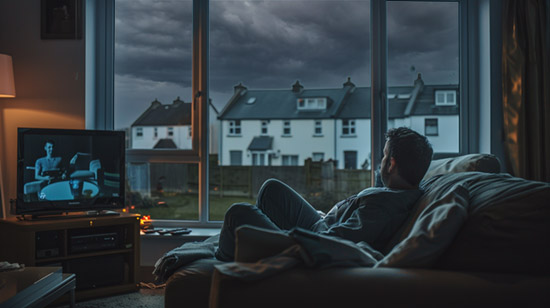Discover how to keep the lights on when the grid goes down — using solar energy.
⚡️ Power Cut? Here’s the Reality for Solar Owners in Ireland
If you’ve invested in solar panels, it’s natural to assume that you’ll still have electricity during a blackout. After all, your roof is generating power — right?
Unfortunately, the answer isn’t that simple.
Most Irish homes with standard solar panel systems do not retain power during a blackout — unless they’re specifically set up to do so.
Here’s why that happens, and how to set up your system to keep running even when the grid goes down.
🔌 Why Most Solar Systems Shut Down in a Blackout
Most residential solar systems in Ireland are grid-tied — meaning they send excess electricity back to the grid and pull power from it when needed.
During a power cut:
- The grid shuts down for safety and maintenance.
- Grid-tied inverters are automatically disabled.
- This prevents your system from sending power into a downed grid, which could endanger workers.
Result: Your panels stop working — even on a sunny day.
🔋 How to Use Solar Power During a Blackout
To keep using solar during a power cut, you need an off-grid or hybrid system. These systems store your solar energy locally, so you’re not reliant on the grid in an emergency.
There are two main options:
1. ✅ Solar Battery Backup System (Hybrid Inverter)
- Stores excess solar power in a battery.
- Detects a power cut and switches to battery mode automatically.
- Keeps powering essentials: lights, fridge, Wi-Fi, etc.
What you’ll need:
- A hybrid inverter
- A solar battery (e.g. 2kWh–10kWh)
- Optional: backup panel to isolate circuits you want powered
2. 🔋 Standalone Solar Generator or Power Station
- Fully portable, plug-and-play system
- Charges from solar panels or mains power
- Ideal for renters, campers, or occasional use during blackouts
Great for:
- Running small devices, charging phones, powering routers
- Emergency backup without a full solar installation
🏠 What Can You Power with Solar Backup?
It depends on your battery capacity. Here’s a rough guide:
| Appliance | Average Watts | Runtime on 2kWh Battery |
|---|---|---|
| Wi-Fi Router | 10W | 2–3 days |
| LED Lights (5 bulbs) | 40W total | 1–2 days |
| Laptop | 50–100W | 10–20 hours |
| Fridge (energy class A) | 150W avg | 10–12 hours |
| TV | 80W | 15–20 hours |
🧰 How to Set It Up (Simplified)
Choose your system
→ Portable solar generator or permanent battery backup
Install or position your solar panels
→ South-facing for best output; avoid shading
Connect your inverter and battery
→ Ensure compatibility with solar panel wattage
Test your system
→ Simulate a blackout and confirm that your backup powers on correctly
🔐 Bonus: Use an Automatic Transfer Switch (ATS)
If you’re powering a home or office setup, consider an ATS:
- Automatically detects outages
- Switches power source from grid to battery
- Seamless experience — no flickering lights or unplugging needed
🇮🇪 Can You Do This in Ireland Legally?
Yes. But:
- Grid-tied systems with batteries must follow ESB Networks safety guidelines
- DIY setups should be professionally reviewed if you’re wiring into your home’s circuits
- Portable systems (e.g. plug-in generators) are safe for general use and don’t require permissions
✅ Final Thoughts: Yes, You Can Use Solar in a Blackout — If You’re Prepared
Most homes in Ireland with basic solar setups won’t have power during an outage. But with the right equipment — like a solar battery, hybrid inverter, or portable solar generator — you can keep your home running smoothly when the grid goes down.
As energy prices rise and grid stability becomes more of a concern, a solar backup setup isn’t just a luxury — it’s a smart move.
❓FAQs
Q: Can I add a battery to my existing solar system?
Yes, but you may need a hybrid inverter or compatible storage device.
Q: How long will a solar generator last during a blackout?
It depends on wattage and battery capacity. A 500Wh system can power lights and phones for a few hours; 1000Wh+ handles fridges and routers for longer.
Q: Do I need planning permission?
Not for portable systems. For fixed installations, planning exemptions usually apply, but check with your local council or SEAI guidelines.



